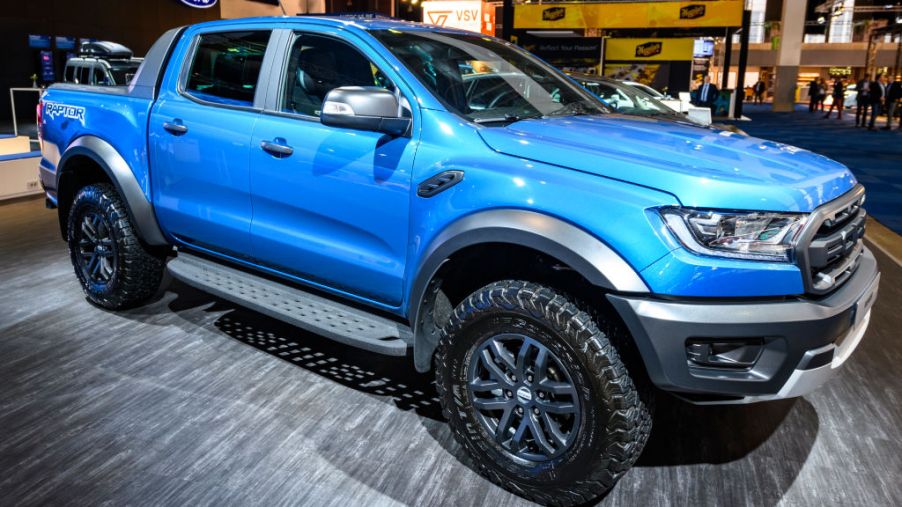
How Much Does the 2020 Ford F-150 Weigh?
When you’re ready to buy a new pickup, you’ll no doubt consider the engine size, amenities, and towing capacity. Maybe you’ll look for the truck that can go ‘beast-mode’ on the trails or fit all the crew when it’s time to head to the job site.
While all of these considerations are certainly important, there’s one characteristic of today’s trucks that often goes unnoticed but carries pretty critical implications. How much a truck weighs can play a key role in how well it performs as you need it to under pressure.
In the world of truck choices, the 2020 Ford F-150 is the lightest of the full-size contenders. We wanted to explore to learn more about why weight matters and to see just how much the F-150 weighs this year.
Why does weight really matter?
Weight does matter, especially when you’re looking at payload capacities for today’s pickups. When the engineers can design a truck, using lighter weighted materials, the truck’s overall weight can be reduced. The lighter the truck, the bigger the payload. As technology advances, the automakers look to take advantage of applying those advancements to help their vehicles increase payload capabilities.
The advantage the 2020 Ford F-150 has in overall weight
One huge benefit the 2020 Ford F-150 has over its competitors is its best in class payload rating. The engineers at Ford opted for a lightweight aluminum alloy for building the body and bed of this year’s F-150.
Lighter doesn’t mean weaker, either. This aluminum alloy is high-strength and military-grade. This pickup weighs 5,065 pounds and doesn’t compromise overall performance. When compared to other full-size trucks, like the Nissan Titan that weighs 5,770, the F-150 has a serious advantage.
The heaviest versus the lightest in towing capacity
The Nissan Titan is the heaviest truck in the full-size segment. It often receives rave reviews for performance and handling, but the extra weight means it struggles to keep up in terms of payload, hauling, and towing. The Titan’s max crew cab towing capacity is 9,350 pounds, with a payload capacity between 1,326 and 1,696 pounds.
The 2020 Ford F-150, with its lighter body, offers an available conventional tow rating up to 13,200 pounds. The payload ranges for the F-150 are best-in-class and range from 1,142 to 2,309 pounds.
Whether you choose the 3.5L EcoBoost twin-turbo V6 or the 5.0L V8 with port-fuel direct injection (PFDI), there won’t be a job you can’t get done.
What’s new for the 2020 Ford F-150?
As icing on the cake, Ford makes towing and hauling easier with a host of packages to enhance the must-have towing features of your F-150. AdvanceTrac with RSC (roll stability control) is a standard system that now provides trailer sway control.
You’ll also have smart trailer tow alerts to notify you of any lighting or connectivity problems. Also available for 2020, are the essential towing extras like the Pro Trailer Backup Assist, Dynamic hitch assist, eight-inch screen, Blind Spot Information System, and factory-installed trailer brake control.
With all these extras, married to the incredibly capable F-150 powertrain choices, anyone looking to tow or haul can build a truck to do so with ease.
Being the lightest full-size truck on the market doesn’t mean the 2020 Ford F-150 is a lightweight. Using durable yet less weighted materials in production means more significant payload capabilities.
When it’s time for you to pick out your new work or play beast ride, don’t just consider the amenities and features. Take into account the overall weight, to leverage the power and performance of the truck. It’s one aspect that Ford paid particular attention to this year, and it shows.


